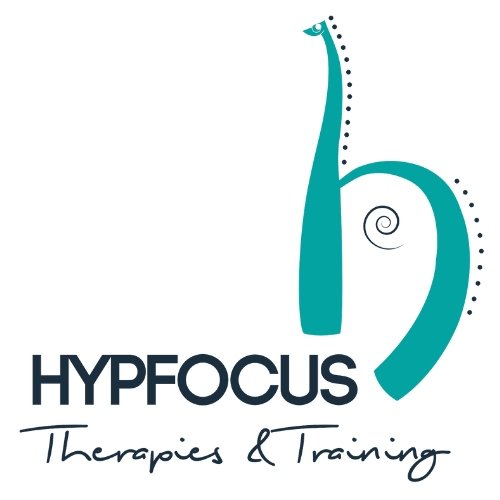Boosting Mood Through Behavioral Activation: How Hypnotherapy Can Help Shift Your Mindset
Behavioural activation is an evidence-based approach that helps individuals struggling with depression or low motivation by encouraging engagement in meaningful activities. By focusing on small, intentional actions, people often break free from cycles of avoidance and inactivity, ultimately experiencing improvements in mood and mental well-being. When combined with hypnotherapy, behavioural activation becomes a powerful tool for creating lasting change by fostering a positive, action-oriented mindset. In this blog, we’ll explore what behavioural activation is, when it can be most helpful, and how hypnotherapy can support a more positive outlook as you implement this approach.
What Is Behavioral Activation?
Behavioural activation (BA) is a therapeutic technique initially developed in Cognitive Behavioral Therapy (CBT). The core idea behind BA is that by deliberately increasing engagement in activities that are enjoyable or meaningful, people can positively affect their mood and reduce symptoms of depression. Instead of waiting for motivation, BA encourages people to act first, which can spark motivation and emotional upliftment. Over time, these activities help to interrupt the negative cycle of avoidance, which can trap people in a rut of inactivity and low mood.
When Behavioral Activation Can Be Helpful
Behavioural activation is particularly effective in situations where negative moods or low motivation create a cycle of avoidance and withdrawal, such as in:
Depression and Low Mood: Behavioral activation is commonly used to address depression, especially for individuals who find it challenging to engage in activities they once enjoyed.
Chronic Anxiety: When anxiety creates avoidance behaviours, BA can gradually reintroduce feared or avoided situations in manageable steps, helping individuals face these challenges.
Procrastination: BA can support those struggling with procrastination by creating a structured plan to engage in tasks, breaking them into small, achievable steps.
Burnout and Stress: For individuals experiencing burnout, BA helps reintroduce restorative activities, enhancing relaxation and mental health resilience.
Social Isolation: In cases of social withdrawal or loneliness, BA can help people reconnect with others and experience the emotional benefits of social engagement.
Implementing Behavioral Activation: Suggested Activities
The beauty of behavioural activation lies in its simplicity and practicality. Here are some suggested activities to help get started with BA:
Practice a Skincare Routine: Taking care of your skin can be a simple, calming act of self-care that helps you feel refreshed.
Go for a Walk: A quick walk around the block or a stroll in nature can boost your mood and improve your energy levels.
Call a Friend: Social connections are important for well-being, so reaching out to friends or family can lift your spirits.
Watch a Movie or Feel-Good Show: Taking time for a comforting film or series can provide a mental break and improve mood.
Research Recipes and Plan a Meal: Find a recipe you’d like to try and plan a nice meal to prepare. This can be a creative way to nourish yourself and unwind.
Learn a New Skill: Start learning a new skill, like playing a musical instrument, knitting, or coding.
Follow a Drawing Class on YouTube: Engaging in art can be therapeutic, and countless online tutorials get you started.
Do a Quick Exercise Routine: Try a short, manageable workout, such as stretching, yoga, or body-weight exercises to boost your energy.
Try a Breathing or Mindfulness Exercise: Relaxation techniques help reduce stress and improve focus.
Declutter a Small Space: Cleaning a drawer or organising your desk can provide a sense of accomplishment.
Write a Journal Entry: Reflecting on your day or expressing your thoughts on paper can help clarify your emotions.
Listen to an Uplifting Podcast: Many podcasts provide inspiration, humour, or learning, which can lift your mood and expand your perspective.
Starting with small, achievable activities makes it easier to build momentum, and over time, engaging in these positive actions can become habitual.
How Hypnotherapy Can Enhance Behavioral Activation
Hypnotherapy can complement behavioural activation, helping individuals overcome resistance to change, increase motivation, and cultivate a positive mindset. Here’s how hypnotherapy can support you in embracing behavioural activation:
Breaking Negative Thought Patterns: Hypnotherapy can help uncover and change underlying beliefs and thought patterns contributing to avoidance and low motivation. By addressing these subconscious blocks, individuals often feel more open to positive actions.
Enhancing Motivation and Confidence: Through visualisation techniques, hypnotherapy allows clients to see themselves succeeding in new behaviours, which can boost their motivation and confidence. This positive reinforcement supports continued engagement in BA activities.
Reducing Anxiety and Self-Doubt: Hypnotherapy can also be used to reduce anxiety and self-doubt, which may otherwise hold someone back from trying new activities or facing social situations. Hypnotherapy promotes a calm, receptive mindset by helping clients achieve a state of relaxation.
Creating a Positive Feedback Loop: By reinforcing the benefits of each positive step taken in behavioural activation, hypnotherapy strengthens the association between these actions and the positive emotions they generate. This creates a mental “reward system” that encourages further engagement.
Establishing Lasting Habit Change: Hypnotherapy can help clients form new, positive habits by reinforcing their desire for change and cementing a sense of achievement. Over time, this approach can lead to enduring shifts in behaviour and attitude.
Ready to Take the Next Step?
Behavioural activation offers a practical path to restoring engagement and purpose, even during challenging periods. When combined with hypnotherapy, this approach becomes even more powerful, addressing both conscious and subconscious factors that influence mood and behaviour. Whether you’re struggling with depression, anxiety, or just feeling stuck, consider incorporating these techniques into your mental wellness journey.
Please reach out if you'd like to work with me, Georgina Mitchell, at Hypfocus Therapies, on implementing behavioural activation boosted by hypnotherapy. I’m here to help you take those small steps toward a brighter, more positive outlook. My contact details are below:

